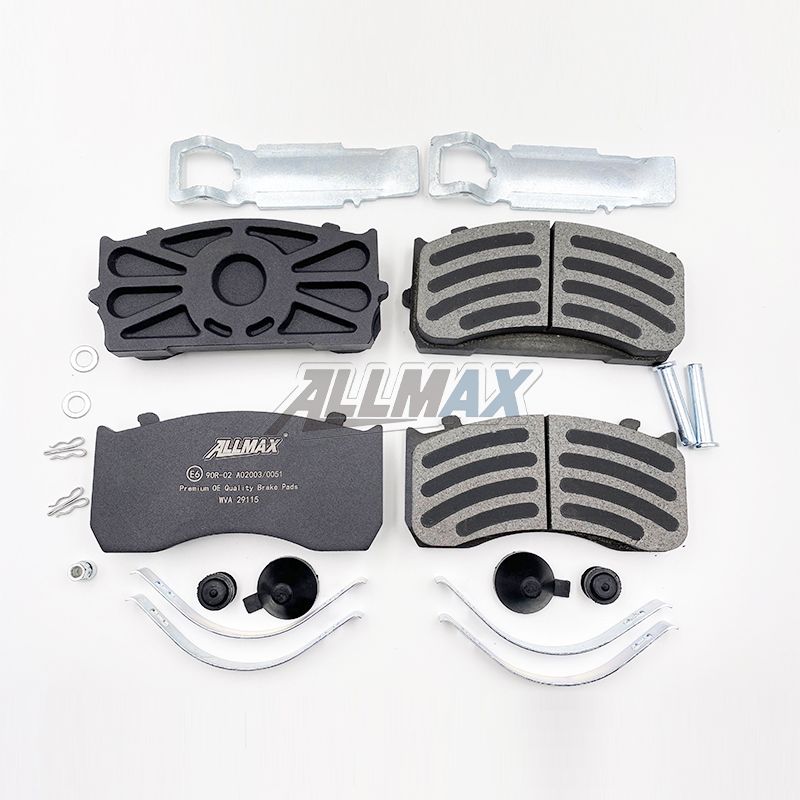Wholesale Comercial Vehicle Brake Pads WVA 29115
Product Description

Brake pads are the most frequently replaced components in a braking system. This is because they are the parts that come into contact with the rotor, and the resulting friction can slow down your vehicle and bring you to a stop. Brake pads also typically include spacers and abutment clips to prevent braking noise and ensure consistent, smooth and even braking. Brake pads are available in a variety of friction material formulations and quality grades, and the service life of the brake pads depends on the composition and design of the brake pads.
Position | Front, Rear |
Brake System | Knorr |
Width | 184.9mm, 173.5mm |
Height | 84mm |
Thickness | 33.8mm, 26.8mm |
Application | MAN, MERCEDEZ BENZ |
Certificates | ECE-R90, IATF16949, ISO9001, ISO14001, CCC |
When should I change the brake pads?
When you should replace your brake pads depends on your vehicle, the way you drive, and the quality of the pads you are currently using. No matter how long it has been since you replaced your brake pads, when you notice symptoms of failure, you should have them inspected and serviced. A visual inspection can confirm whether the friction material of the brake pads is worn, and severely worn brake pads may even touch the rotor and cause further damage.
No brake pads last forever. When to replace them depends on how you drive and where you replace them most often. Typically, however, you should service it every 40,000 to 50,000 miles.
However, if your situation gets worse, there are signs to tell you. For example, listen for the whine or rub from your brakes (this usually indicates a deformed or damaged rotor). Also, feel their vibrations. You may also notice that it takes longer to slow down and stop. Finally, look for the warning lights on the dash and inspect the pads for wear and damage.
For more information on changing brake pads, check out Wholesale Brake Pads.
Copyright:@2020-2021
Comments Please sign in or sign up to post.
0
0 of 500 characters used